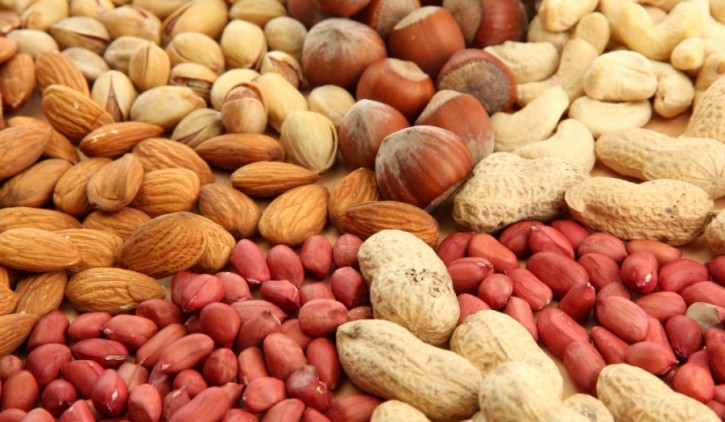
Today, I’m here to tackle some of the most common questions asked relating to protein and a plant-based diet.
First, let’s break down some of the different plant-based lifestyles:
- Lacto-Ovo Vegetarianism (consumes both eggs and dairy products)
- Lacto-Vegetarianism (consumes dairy products, but no eggs)
- Ovo-Vegetarianism (consumes egg products, but no dairy)
- Pesca-Vegetarianism (consumes fish but no other animal flesh–may include dairy and eggs)
- Vegan (abstains from all animal flesh foods and animal-derived products, i.e. honey, dairy, and eggs. This can also be extended into lifestyle, such as avoiding leather, shoes, or other materials made from animals.)
While there are differences in these diets, the foundation of all of them is the same: fruits and vegetables, whole grains (or gluten-free grains), healthy fats, and plenty of water.
People say that vegetarians can’t get enough protein in their diets because they don’t eat meat. Is this true?
No … and yes. Let’s start off with the first part of this answer, no. Vegetarian diets, and even vegan diets which are a bit more restrictive, can contain more than enough plant protein for your body to thrive and for you to maintain a healthy, active lifestyle, as long as your diet is planned properly.
One of the biggest problems I encounter with my clients who practice plant-based eating is the lack of overall protein in their diet, including plant protein sources. Getting adequate amounts of plant protein is extremely important as protein is the building block of our cells, muscles, tissues, and so much more. Protein plays many roles in the human body; it’s responsible for a myriad of functions, including transportation and storage, as a structural component (collagen, muscle tissues, etc.), messengers (hormones, etc.), enzymes, and antibodies.
Protein should be high priority in all diets, but especially in plant-based ones. Making sure you have enough protein throughout the day is key to long-term success. My tip is to make sure you include a vegetarian plant protein source at every meal–this will help round out your overall intake of amino acids throughout the day (which are the building blocks of protein). Check out the Academy of Nutrition and Dietetics position paper on vegetarian diets for ideas on what to eat in order to ensure you’re taking in sufficient amounts of protein and other often-overlooked nutrients.
What are the best sources of plant protein?
There are plenty of great sources of plant protein for vegans and vegetarians. Remember the different types of vegetarianism? Well, the proteins consumed will be dictated by which lifestyle someone is practicing. No matter what your lifestyle, the following foods are good sources of plant-based protein:

(Not included in this list are processed vegetarian food products, like soy burgers, hot dogs, etc. These contain protein, but they should be eaten in limited quantities since they tend to be high in sodium.)
If your diet is not strictly plant-based, you can include other sources of protein: 1 whole egg provides 6g of protein (an egg white is 4g), and dairy products have varying amounts of protein.
Also note, many vegetables, carbohydrates, and some fruits naturally contain trace amounts of protein as well (2-5g per serving, depending on the food). These shouldn’t be considered reliable sources of protein unless you’re eating incredibly large amounts of them.
How much protein should I be getting every day?
This is a great question, with many answers. It depends on your lifestyle, goals, digestion, diet, etc. In general, 0.8g of protein per kg of your bodyweight is the recommended daily allowance (RDA) guideline recommended by the Academy of Nutrition and Dietetics. I would actually go a bit higher, as vegetarian and vegan proteins are digested a bit differently and are not as bioavailable as animal proteins. For example, a 140lb woman would need: 140lbs / 2.2 (conversion from lbs. to kg) = 64kg. 64kg x 0.8g protein = 51g of protein per day. Let’s say this female was eating 2000 calories/day, protein would make up roughly 10% of her intake–this is fairly low in my opinion. Again I highly recommend meeting with a qualified practitioner or Registered Dietitian who can set specific protein ranges for your lifestyle and goals (if you’d like to work with me, I offer Nutrition & Health Coaching through my website).
Is it true that vegetarians have to combine certain foods in order to absorb protein?
No. Combining vegetarian proteins to make a “complete protein” or “complementary protein” is a theory of the past. We now know that our bodies store amino acids (i.e. the building blocks of protein), and they can be utilized to make up for any limiting amino acid in a vegetarian food. It is important however to consume a wide variety of vegetarian proteins and foods rich in nutrients throughout the entire day, but it doesn’t have to necessarily be in the same meal. On the other hand, some foods, like those rich in vitamin C, do help your body absorb the plant-based iron sources (non-heme iron)–for example, think of eating red bell peppers with beans or an orange with nuts or seeds.
Should I be adding protein powder to my diet?
Possibly. If you’re an athlete, active, or engaging in fitness training it may be a smart idea to supplement your diet with good quality vegetarian based proteins to make up for your demanding needs. Notice the word supplement–this is not meant to be the bulk of your protein intake. Protein powders are used to supplement (i.e. make up the deficit in) the diet overall.
Even if you’re not very active, protein powder still may be a great option to incorporate into your diet to make sure you’re meeting your needs. There are many quality brands out there that can easily be mixed in with water, almond milk, coconut milk, smoothies, etc. Vega, Sunwarriorimage, Garden of Life Raw Proteinimage, PlantFusionimage, and Perfect Fitimage are some of my current favorites.
I hope that answers some of your initial questions about plant-based protein. I want to hear from you: do you still have questions about plant protein, minerals, or overall nutrition in a plant-based diet? Post your questions below so I can address them in an upcoming post!
Source : https://ohmyveggies.com/plant-protein/
